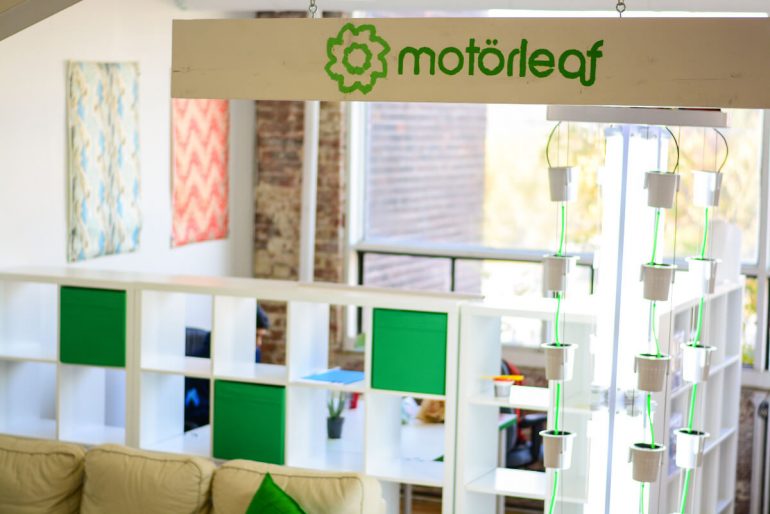Montreal-based Motorleaf has raised $2.85 million in seed funding to build up its platform providing data analytics to greenhouse operators.
The investment closed in two rounds with the final $2 million investment committed in May. The round was led by agtech accelerator Radicle Growth, with participation from Desjardins Capital, Real Ventures, Fluxunit, and 500 Startups Canada.
Motorleaf’s Agronomist.ai platform promises to predict accurate harvest amounts, allowing producers to stay on top of contractual obligations and plan operations like the amount of labour to hire per week in anticipation of decreased or increased crop yields.
“A human, even in a multi-million dollar facility, is still off by 20 to 30 percent on any given week.”
“In Canada, the labour cost has gone up 40 percent in four years. Imagine walking into your company and all your costs to labour went up 40 percent,” he said, citing the increased minimum wage in Ontario and a restriction on foreign workers who would accept lower wages than Canadians. “Anything someone can do to plan their labour more effectively is going to affect their bottom line in a positive way.”
The company plans to use the funding to move beyond yield prediction for tomatoes and bell peppers, the only two crops that the platform can predict right now. It’s expanding to different crop types, and trying to support commercial greenhouses across the growing cycle.
The plan is for Agronomist.ai to move into predicting crop diseases, optimizing growing conditions, and track light and nutrients. Monk said that, beyond optimizing yield, this can be helpful for producers to make decisions like investing more in more infrastructure; even if it costs more, the platform would calculate how the benefits would outweigh the cost.
Monk said that the unique challenge that greenhouses have faced to date is a lack of predictability. While large operations like factories know they can put a certain amount of investment, understand their outputs, and predict their sales, “Crop prediction isn’t like that.”
“They know what they’re putting in, but what they’re getting out is uncertain. But to make money, they have to pre-sell what is going to come out the other end,” Monk said. “And they may or may not have it, or they may have too much of it. So their pricing strategy and their profit margins bounce all over the place because of this consistent uncertainty they have, which is driven mostly by things out of their control.”
Asked about how they build an AI that can make predictions when the data they work with is so varying, Monk said that it’s about understanding the how each client uses their equipment differently, and predicting how the environment, new crops, and diseases will affect the state of crops inside the greenhouse
“I think it’s unlikely that, right out of the gate, you get an absolute 100 percent accuracy rate when there are so many variables that are nature-based,” he said. “But we want to benchmark ourselves against the next best option, which is a human. A human even, in a multi-million dollar facility, is still off by 20 to 30 percent on any given week. The fact that we can cut that by more than half is still a huge gain for the greenhouse.”


